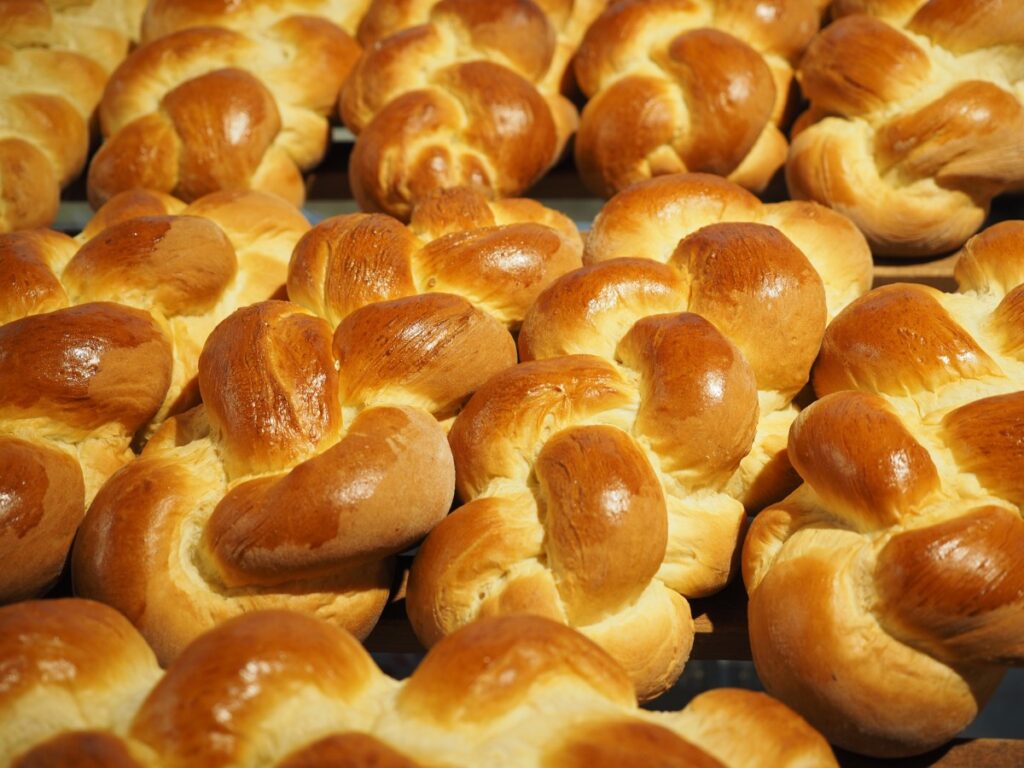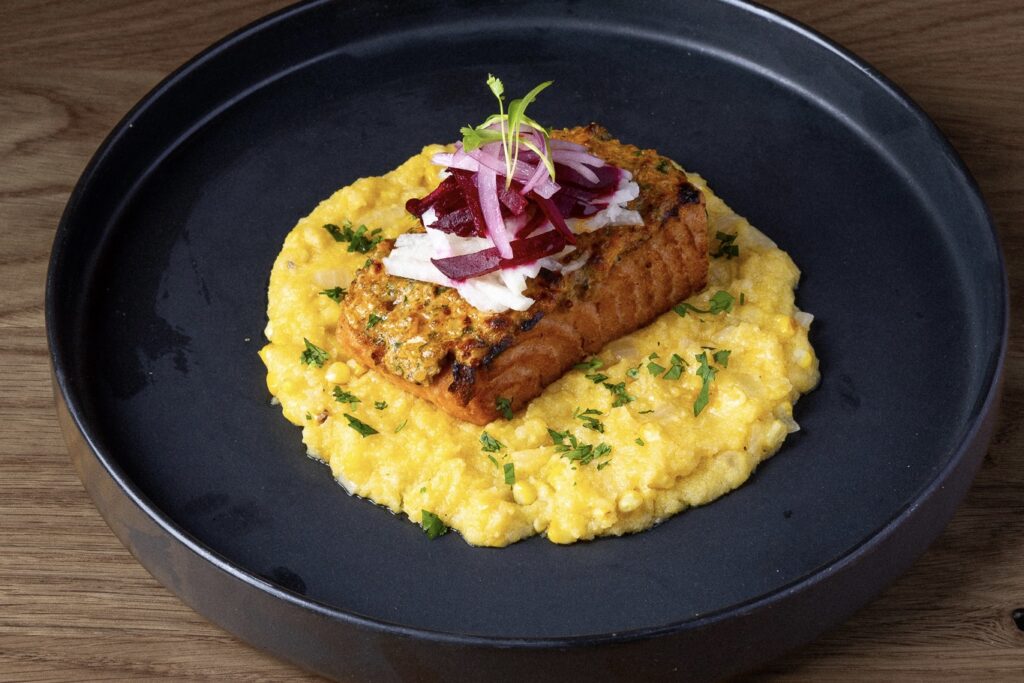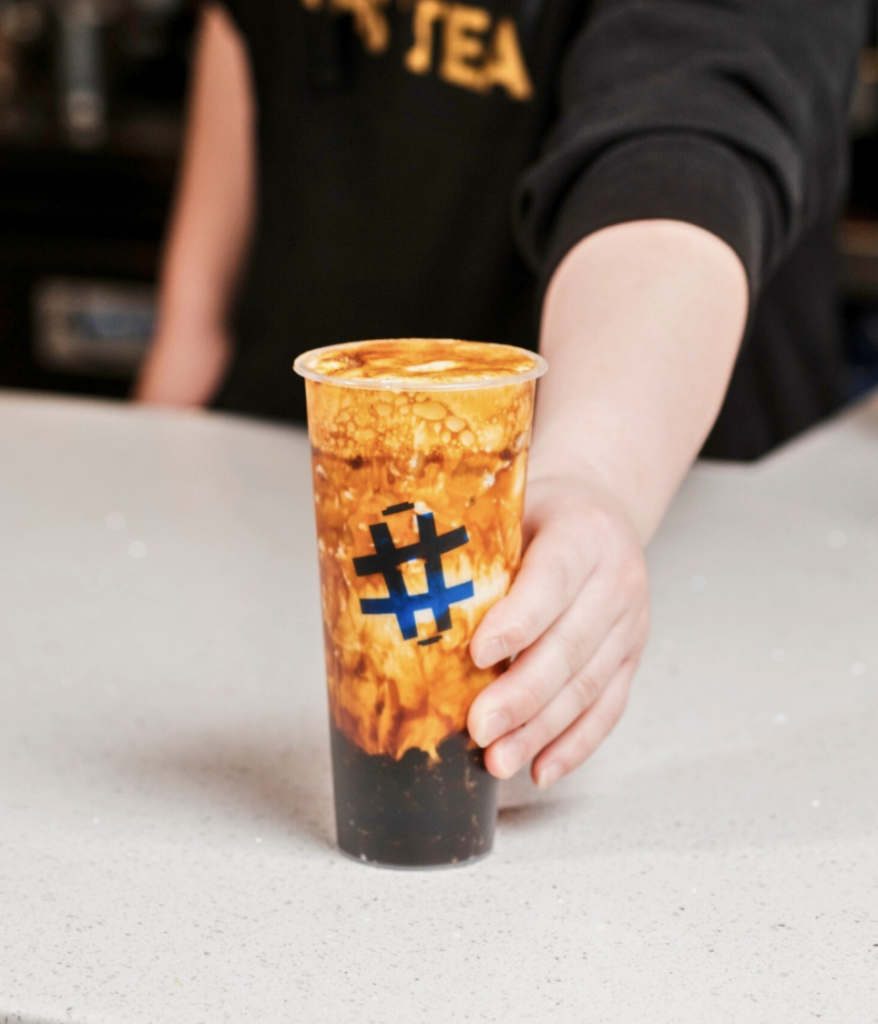Adina Wagman has been making challahs for years, so when the events of October 7 spurred in her the desire to “do something to help Israel,” the mom of two naturally thought of a charity-related endeavor involving her weekly baking sessions.
Adina’s Challahs was thus born, a project through which Wagman raises funds for the UJA’s Israel Emergency Fund.
Here’s how it works: twice a week, Wagman bakes five pounds of challah, a process that yields 12 loaves topped with vanilla-scented streusel in total. She keeps two challahs for herself and donates ten others in pairs (a total of five sets) to anyone who makes a direct donation of at least $36 to the charity of her choice. All you have to do is send a receipt of your contribution to adinaschallahs@gmail.com and show up in her lobby on Friday at 10am for pick up.
Adina’s Challahs‘ website, which her son Daniel built, is constantly updated, so those interested can monitor how many slots are still available to nab on a daily basis.
“I didn’t like the idea of selling my challahs and saying ‘proceeds will go to Israel’ because I feel like people always say that but others wonder how much money is actually going to the cause,” Wagman explained over the phone.
Since launching her endeavor at the beginning of November, Wagman has given away over 140 challahs and raised more than $8,500—all the while adding the names of the charity givers to her prayers list.
“I am hoping Israel soon won’t need our funds anymore, but I don’t think that’s going to be the case,” she said when asked about the longevity of her project, also noting that folks from all over the world—from Canada to Connecticut—have contacted her about potentially starting their own local version of Adina’s Challahs. “I tell people that they can do this for any charity they would like to draw attention to, which is nice.”
In addition to monetary aid, Wagman hopes that her endeavor will spread the word on the plight of Israel and the Jewish people as a whole, providing an opening to talk about the issues.
“Even some of my non-Jewish friends have donated and they wouldn’t otherwise know about the work that’s going on,” she said. “So I find it a nice opening to talk about what UJA is doing and expose more people to it. You start with challah and move on to Israel.”
“



